
September 2024 - December 2024
Prepared by
The Office of Communications and University Relations




September 2024 - December 2024
Prepared by
The Office of Communications and University Relations


By Anton Media Group Staff

Posted on September 1, 2024
This year, SUNY Old Westbury welcomes its largestever first-year class. The incoming class has 800 first-year students, compared to the university’s previous record of 751 students in 2028.
The Class of 2028’s 800 students represent a near10% increase from the Class of 2027.
The students were selected from a pool of 7,800 applications. Applications to the school increased 11% from last year.
“We’re excited to welcome more first-year students than we ever have before,” said SUNY Old Westury President Timothy E. Sams. “We see this achievement as further proof that our academic offerings, coupled with a campus community focused on student success and our commitment to justice and equity, are the right fit for students who today want to be prepared for the work and world that lies ahead of them.”
The 2024-2025 student body began its semester on Monday, Aug. 26.
“This year’s record-breaking enrollment of first-year students continues the upward trend we’ve been experiencing in the post-pandemic era,” said Vice President for Enrollment Management and Marketing Bryan Terry. “Our commitment to academic excellence, diverse and inclusive campus community, and innovative programs is resonating strongly with students and their families. These results affirm that our strategic initiatives and dedication to student success are proof that SUNY OW is a ‘first choice’ institution for all students interested in higher education.”
Full article can be viewed at: https://www.longislandpress.com/2024/09/01/suny-old-westbury-welcomeslargest-ever-freshman-class/


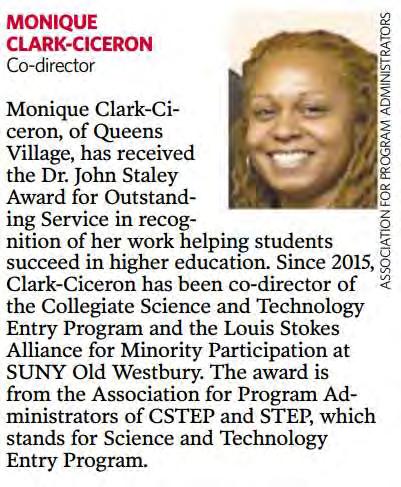

By Julie Prisco
SUNY Old Westbury recently hosted His Majesty and the Sultan MouhammadNabil Mforifum Mbombo Njoya, king of the Bamum, during his first visit to the U.S. since his coronation in October 2021.
King Njoya, 28, is the 20th king in a ruling dynasty dating back to 1394.
Posted on September 12, 2024


Bamum is a pre-colonial African state that now makes up part of northwest Cameroon. The Bamum kingdom is one of the most famous traditional African kingdoms with the historic distinction of inventing its own phonetic script at the end of the 19th century. Current estimations show that the number of Bamum worldwide is 1.3 million people.
The previous king, El-Hadj Ibrahim Mbombo Njoya, ruled from 1992 until his death in September. The new king is the late king’s eldest son.
King Njoya has strong ties to the U.S.; he graduated from St. John’s University in 2015, majoring in networking and telecommunications and minoring in social justice theory.
During his visit to SUNY Old Westbury, Njoya sat down for an interview with professor Sylvie Kande. SUNY Old Westbury students, staff and professors came to the campus center to hear the new king discuss the nature of his visit to the U.S. and the Bamum kingdom. Njoya said he hopes to share Bamum traditions with those he visits during his trip.
“I feel really excited to be back and feel a lot of nostalgia,” the king said.
As a new king, Njoya said his time as a university student in the U.S. impacted and informed his leadership style.
“Being in the U.S. is a lot different as an African. The American way of living is a really important role in understanding what it means to evolve to be able to assess differences and be able to improve,” Njoya said. “The [American] style, the mindset are a lot different. People are more forward; they look for results. I think we all have to care about others and move forward with a better life for others.”
Kande asked Njoya about the Bamum Museum, built by his father in 2018, and the impact of the museum on the Bamum people.
“The Bamum people’s tradition and culture comes from the king. There is a good, direct connection with the king and the Bamum people. And the people have a deep connection with the museum,” Njoya said. “The museum is a way to express relationships with the Bamum people.”
As the king is just starting his journey of leadership, he is thinking about improving the communities for the Bamum people, Njyoa said.
“I think about creating jobs and helping people,” he said. “My priority is what helps people move forward.”

Old Westbury President Timothy E. Sams asked the king what advice he would give students when they leave university and attempt to engage in other communities.
“The world is different. You have different experiences, depending on where you are depending on the history of the place where you are. I can tell you, the first thing you have to do is understand,” Njoya said. “You have to be able to accept the way people are. Understanding why people the way they are makes it easier for you.”
Njoya said that when he first came to the U.S., he didn’t speak English and had to take ESL classes to learn before studying for his degree.
“It was quite challenging, but I think the fact that I was able to accept and understand people made it easier. If not, I would have been very separate from what was going on,” he said. “I keep what I am, but I want to understand why people are the way they are.”
Full article can be viewed at: https://www.longislandpress.com/2024/09/12/the-king-of-bamum-visits-sunyold-westbury-2/




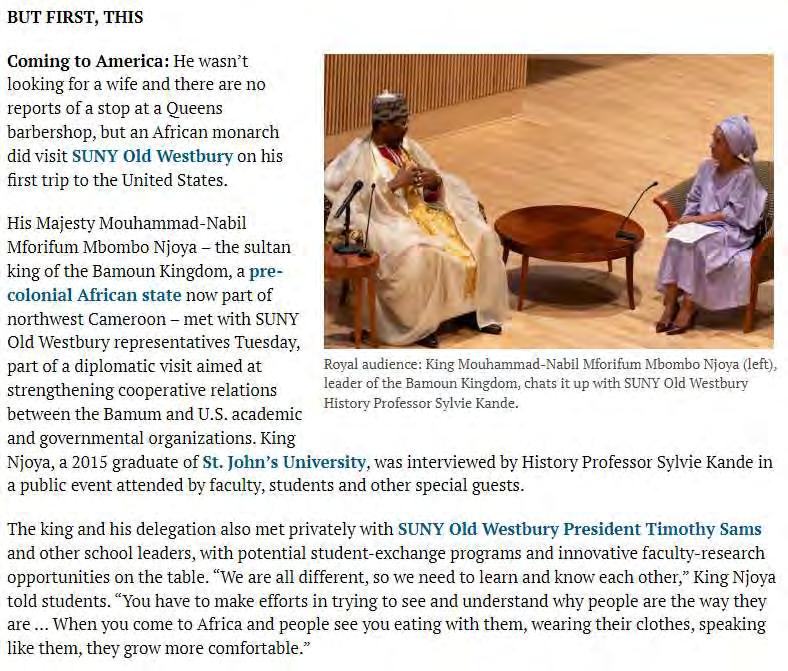
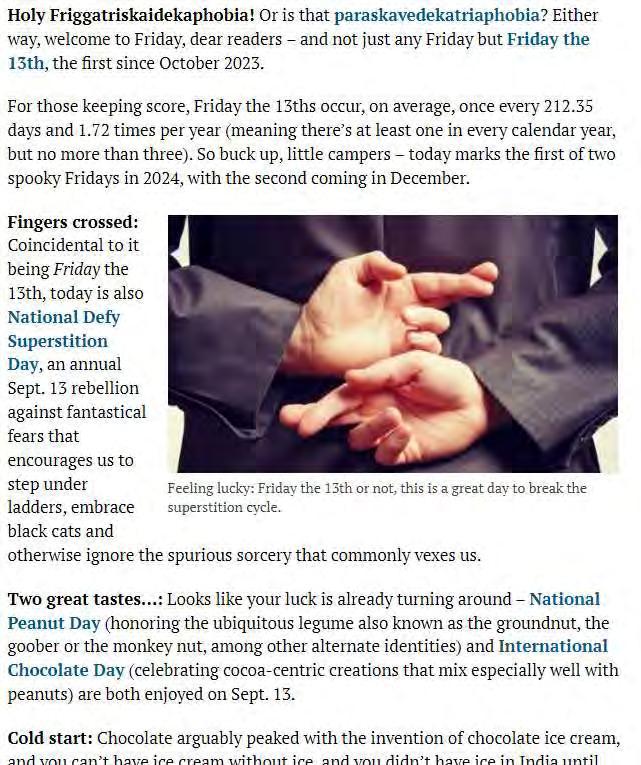
Available online at: https://www.innovateli.com/no-909-dont-be-spooked-were-fighting-friday-the-13th-fears-with-chocolate-african-royalty-and-science/

By The Island 360 September 13, 2024

The Bachelor of Science degree in public health offered by the Public Health Department at SUNY Old Westbury achieved a seven-year reaccreditation, through 2031.
The Council on Education for Public Health, an accrediting agency recognized by the U.S. Department of Education, re-accredited the school. This marks the first accreditation renewal since the program was initially approved in 2019.
“We’re thrilled to have earned this reaccreditation of our program, reinforcing our role as a leader in undergraduate public health education on Long Island and in the greater New York metropolitan area,” Sarah Smith, chair of the public health department, said in a press release. “Our students have meaningful, applied educational experiences in this program, which lead to jobs wherein they can be public health advocates and leaders in their communities.
The reaccreditation process required Public Health and the University to conduct a thorough self-study, starting in 2022, with the collaboration of faculty, staff, students and community partners. In April 2024, a CEPH team visited the campus to review the report and meet with various stakeholders.
“Our current students and nearly 1,000 graduates already know about the high quality of this program,” Provost David J. Lanoue, said in a press release. “Having a prestigious organization like CEPH agree is a testament to the excellence of our program and its faculty.”
Serving about 160 majors, the degree in Public Health enables students to understand the underlying social determinants of health. Students learn how to critically assess and address factors that contribute to the health of populations, integrating real-world experience with coursework and learning skills to improve the public’s health at individual, interpersonal, community and policy levels.
The program prepares graduates who go on to careers and graduate training in a broad array of health fields including health program planning and evaluation, epidemiology, health policy, health education, environmental and occupational health, health administration, social work, allied health professions and more.

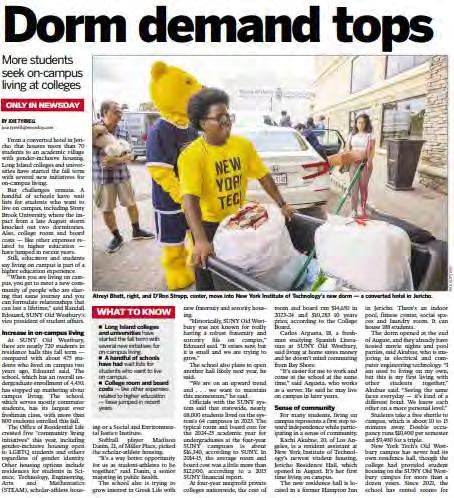


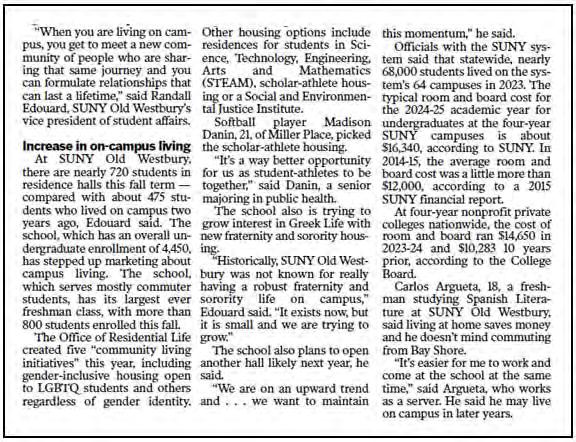




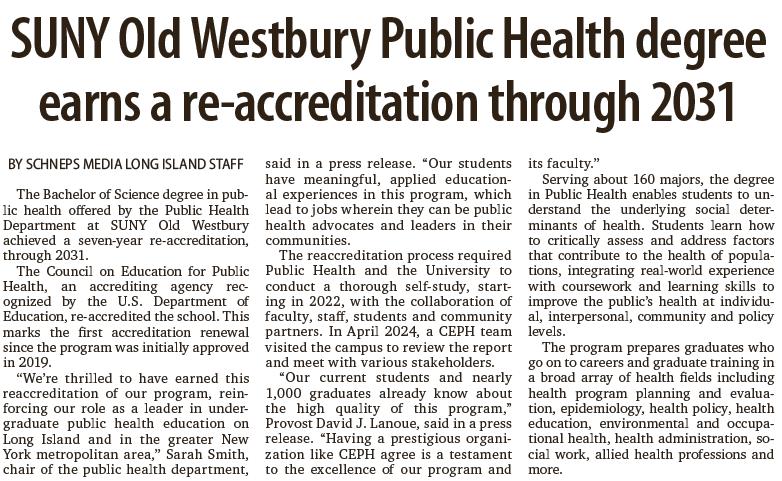
Appointments, resignations, retirements, awards, deaths
By Julia Piper September 20, 2024
Appointments
Katrina Armstrong, executive vice president for health and biomedical sciences at Columbia University, has been named interim president after the resignation of Minouche Shafik.
Laura Byrd, senior vice president for institutional advancement at LakeSumter State College, has been named interim president following Heather Bigard’s resignation.
CHIEF ACADEMIC OFFICERS
Appointments
Appointments
Anne Kenworthy, vice president for enrollment management, marketing, and strategic initiatives at the University of Findlay, in Ohio, has been named president of Spalding University, in Kentucky.
David J. Lanoue, provost and vice president for academic affairs at Southern Arkansas University, has been named provost and senior vice president for academic affairs at the State University of New York Old Westbury.
Stephen Snyder, dean of Middlebury Language Schools and vice president for academic affairs at Middlebury College, has been named interim president.

David Troilo, chief academic officer at the State University of New York College of Optometry, has been named president of the college.
Jeannine Diddle Uzzi, vice president for academic affairs at Adler University, has been named president of Thomas College, in Maine.

By Michael R. Ebert michael.ebert@newsday.com
Twenty-one Long Island educators are being recognized as “school heroes.”
September 25, 2024
The Long Island Coalition Against Bullying is honoring the educators for demonstrating “exceptional commitment” to creating safe and inclusive school environments and for making “lasting impacts” on the lives of students.
They will be celebrated Oct. 21 at a Long Island School Hero Awards reception at the Stonebridge Golf & Country Club in Hauppauge.
“These heroes were selected for their unwavering dedication to fostering safe, supportive and inclusive environments for students,” said the coalition’s founder and executive director, Joe Salamone. “Their contributions go beyond the classroom, making a lasting impact on the lives of countless young people across our Long Island communities.”
The honorees and their school districts are Alison Lepore, Babylon; Wendy Tepfer, Bellmore-Merrick; Sequoyah Wharton, Brentwood; Michelle Dick, Commack; Kristen Wallace, Deer Park; Vincent Healy, East Rockaway; Paul Defendini, Farmingdale; Marisa Wanatick, Hauppauge; Caroline Kind, Levittown; Frank Naccarato Jr. and Patricia Natale, Lindenhurst; Mary Kirby, Lynbrook; Glen Johnson, Malverne; Kathryn Lake, Northport-East Northport; Jillian Edelman, Oceanside; James Foy, Sayville; Dennis Wickes Jr., Smithtown; and John DeBenedetto, William Floyd.
Other honorees are Michael Califano, the Diocese of Rockville Centre; Adele Gutierrez, SUNY Old Westbury; and Michael Natale, Nassau BOCES.
Scott J. Beigel, a Dix Hills native who was killed while sheltering students during the 2018 shooting at Marjory Stoneman Douglas High School in Parkland, Florida, will also be honored posthumously.
Foy, principal of Sunrise Drive Elementary School in Sayville, was praised by his district’s officials for promoting social-emotional learning and striving to personally know every student in his building.
“Dr. Foy is a champion for all of his students,” said Sayville school district Superintendent Marc Ferris. “The Sayville community is so fortunate to have him as our instructional leader at Sunrise Drive Elementary School.”

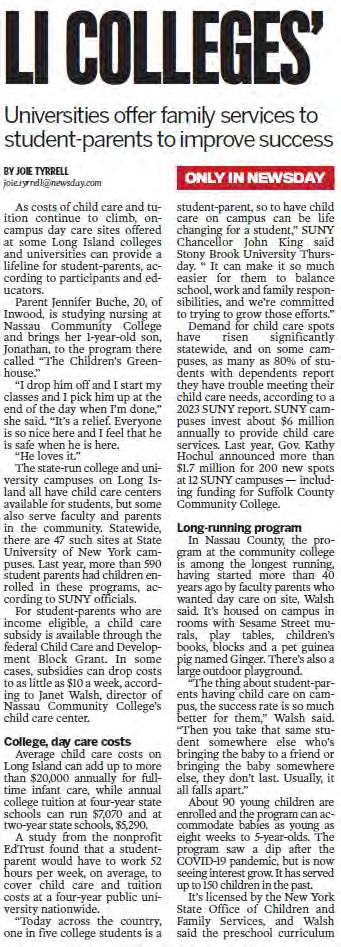
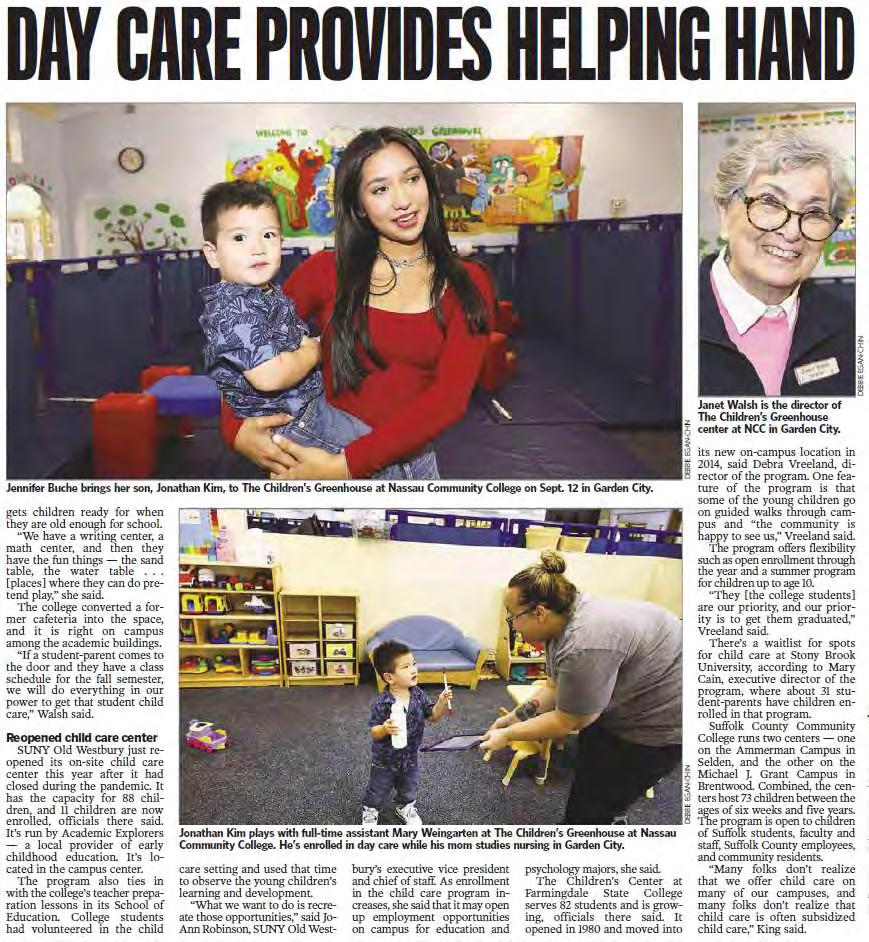



To view the full article, go to https://www.cityandstateny.com/power-lists/2024/10/2024-long-island-power100/399991/

New Beta Gamma Sigma chapter opens at SUNY Old Westbury School of Business
SUNY Old Westbury,Neighbor

Posted Tue, Oct 8, 2024 at 11:50 am ET
Two residents of Hicksville, New York, were among the four business professionals inducted by the SUNY Old Westbury School of Business into its new Beta Gamma Sigma International Business Honor Society on September 26, 2024.
Hicksville's Pooja Aiyar, a 2024 graduate of the University, and Patrick Stines, a 1998 graduate and now partner with Novak Francella, LLC, were among the inaugural inductees for the campus' honors society chapter, which was also chartered during the Installation and Recognition Ceremony.
“Beta Gamma Sigma Honor Society is the leading business honor society globally,” said Shalei Simms, dean of the School of Business. “Membership is reserved for the top students from AACSB-accredited business schools. This fall, we proudly welcomed our first Beta Gamma Sigma members from the SUNY Old Westbury School of Business and look forward to expanding our membership in the years to come.”
Joining Aiyar and Stines as inductees were Maleka C. Stephens ’95 (awarded posthumously), co-founder of SMG Consulting Group and David Antar, chief executive officer of Advance Convergence Group. More about the honorees can be found on the School of Business website.
Founded in 1913, Beta Gamma Sigma Honor Society is an international business honor society for AACSBaccredited schools, which are the top five percent of business school programs around the world. SUNY Old Westbury earned accreditation from AACSB International in August 2023.
SUNY Old Westbury has been preparing students for careers in business for more than 45 years. With undergraduate and graduate degree programs centered in Accounting, Business Administration, Finance and Marketing, the School of Business pursues its mission of empowering students with the knowledge, skills, and values to think critically, communicate effectively, and act responsibly in the constantly changing landscape of business today. An accredited member of AACSB International, the School of Business offers rigorous academic training in a small class atmosphere to more than 700 students in its undergraduate and graduate programs.

Day-long broadcast featured music, interviews, discussion on contribution of radio to democracy
SUNY OW Communications,Neighbor Posted Tue, Oct 8, 2024 at 10:30 am ET

SUNY Old Westbury students (from left to right)
Muhamed Doucoure, Joshua Wilson and Ryszard Porcelli discuss on-air the role of radio and music in the development of their personal and political views during their participation in World College Radio Day. (OWWR Web Radio)
Old Westbury Web Radio, the campus radio station of SUNY Old Westbury, joined with more than 700 college radio stations from around the country and world to mark the 14th World College Radio Day on October 4, 2024.
“World College Radio Day celebrates the power of this medium to share ideas and information within a community – whether that means on campus, in the neighborhood or around the world,” said Joseph Manfredi, OWWR station manager and an instructor in the campus’ Media and Communications program.
Students and community members offered programming and conversation throughout the day on the station’s live, online broadcast. The day’s music and talk programming centered on this year’s World College Radio Day theme, “The Soundtrack of Democracy.”
“Radio brings people together, knowing that ours as a university radio station has helped bring more people into the fray, gives me great honor,” said Patrec-Alexander Jones-Brown, a senior Media and Communications major and OWWR program director.
“Knowing that this year's theme is ‘The Soundtrack of Democracy’ made this day even more important because of the basis of freedoms from which our founding fathers created this nation. Radio serves as a bridge for all to experience those freedoms.”
OWWR, which has participated in World College Radio Day since its inception in 2011, streams audio aroundthe-clock, seven days a week. This year OWWR included a live video feed throughout the broadcast day. The station offers a variety format featuring an array of music, news, sports, talk, and public affairs programming.
“Radio, in any form, is singular in its ability to have listeners react and interact in real time.” said Manfredi, while acknowledging the growth in both quantity and popularity of multimedia productions and podcasting.
“Radio also continues to act in the interest, convenience and necessity of the public and still comes in first during any crisis. In both ways, this medium has been bringing people together since the industry dawned more than 100 years ago, enabling the importance and power of free speech all along the way.”
The College Radio Foundation organizes the annual WCRD event and raises money for student scholarships and college radio station grants. This year, Gavin DeGraw, a GRAMMY nominee and multi-platinum singer/songwriter, served as the event’s official ambassador. In a keynote interview recorded for all participating radio stations, DeGraw discussed his life story, his perspectives on democracy, and how college radio kicked off his career.

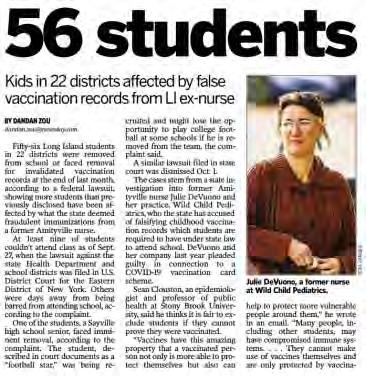






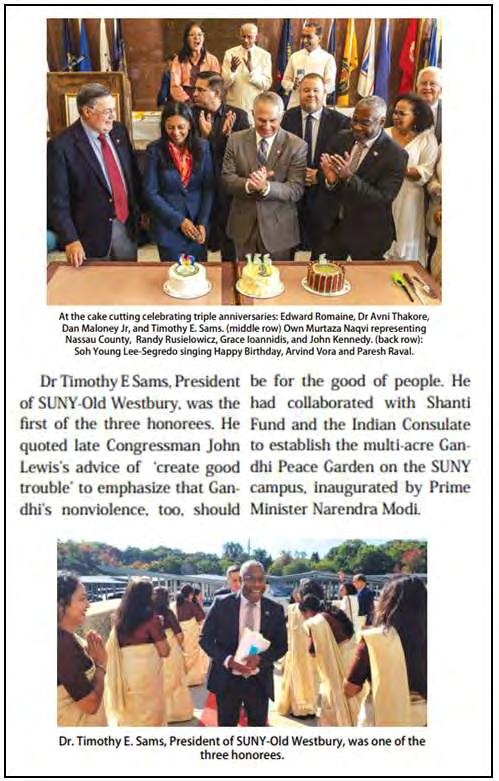

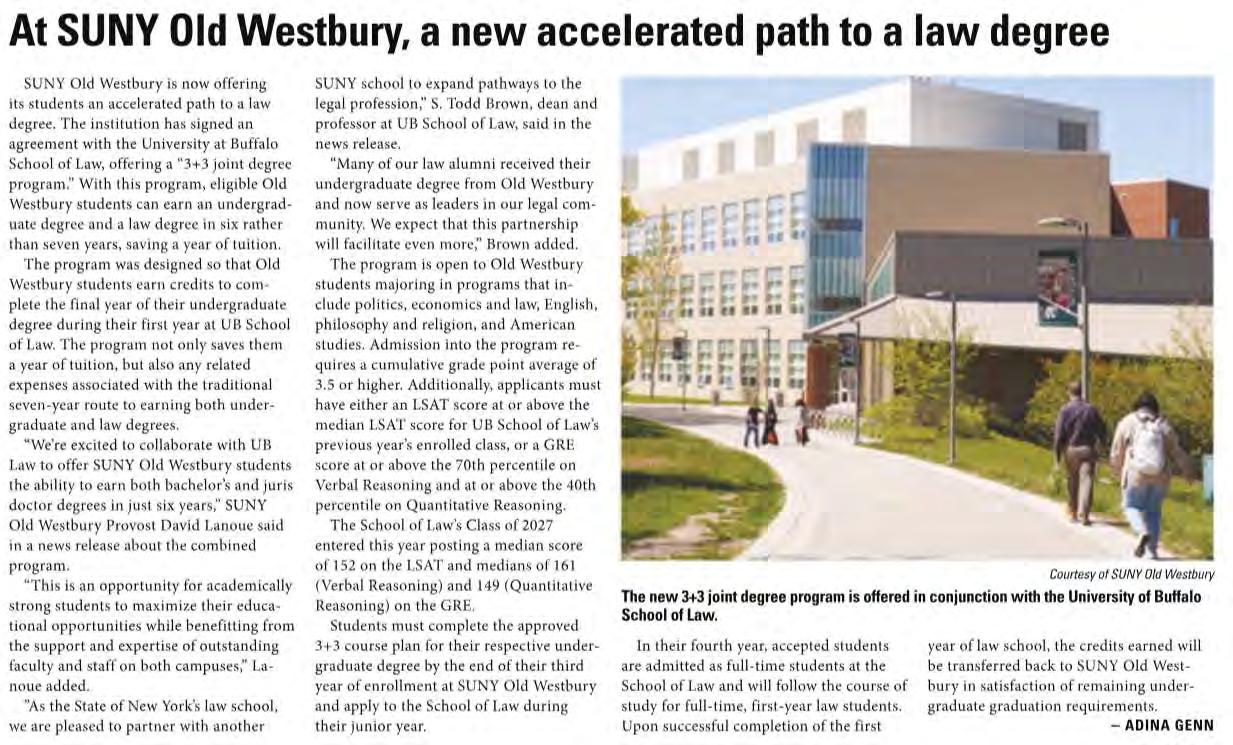




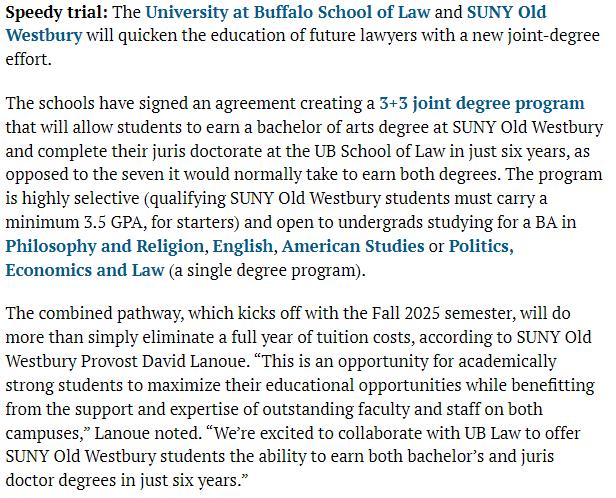

Available online at:
https://www.innovateli.com/no-919-alaska-arrives-chuck-berry-rocks-li-zip-codes-score-and-election-fatigue-threatens-us-all/
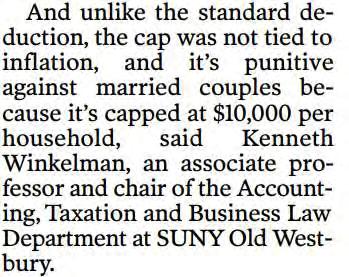
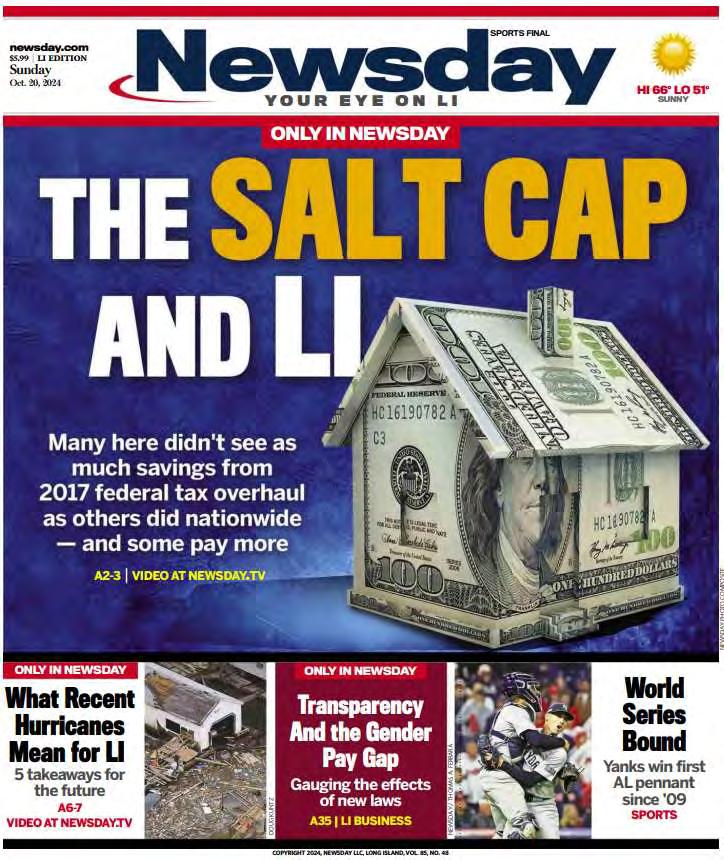


Long Island, NY


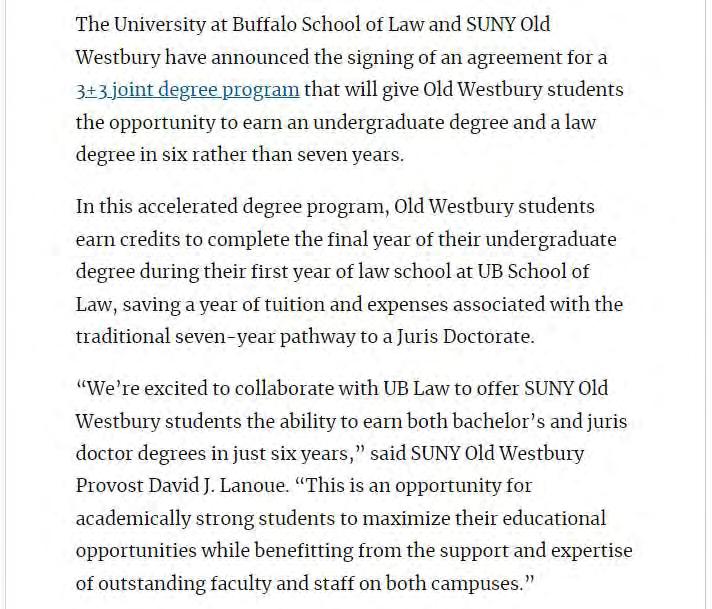
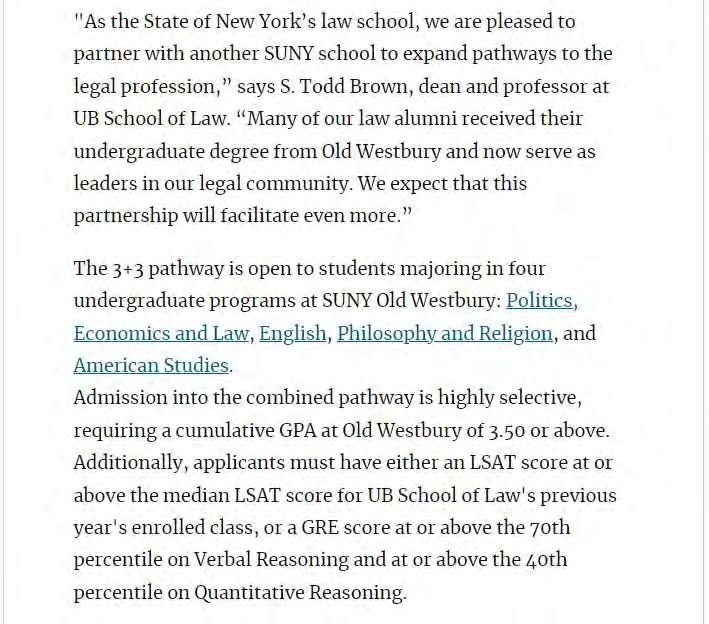

Visit listing online at: https://patch.com/new-york/longisland/new-partnership-offers-faster-track-law-degrees-nodx



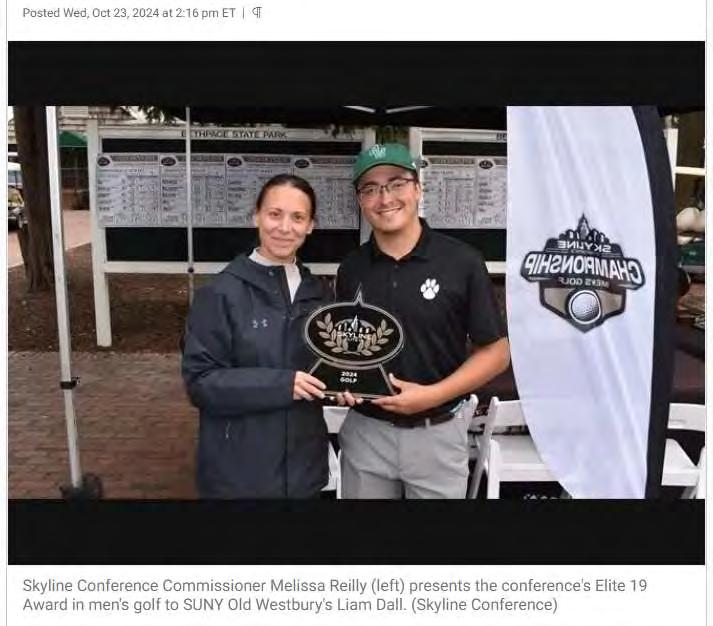




Visit article online at: https://patch.com/new-york/glencove/glen-cove-resident-honored-inaugural-elite-19-award-nodx




By The Island 360 Posted on October 28, 2024
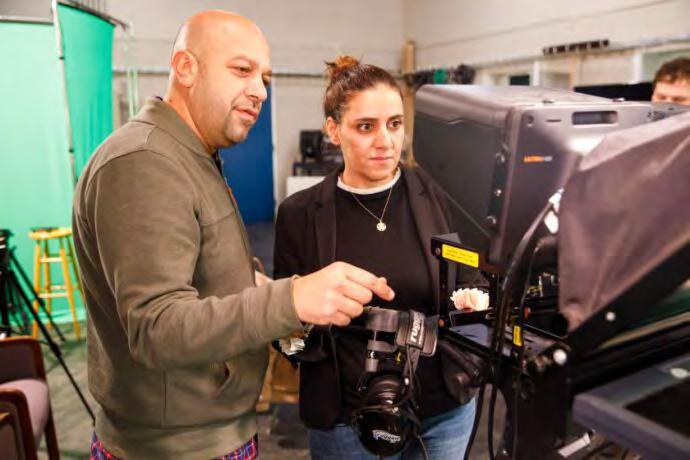
A SUNY Old Westbury Media and Communications professor is among 14 statewide selected to develop new programs through the new SUNY Institute for Local News to address news deserts and struggling news outlets.
Announced on Oct. 22, Assistant Professor Ӧzgür Akgün will serve as a faculty “champion” within the Institute, which will operate in partnership with the Center for Community News and serves as the first statewide program of its kind in the United States.
“Journalism is the keystone of a healthy democracy, but as thousands of local news outlets have closed their doors or dramatically reduced staffing since the mid-2000s, that keystone is chipping away,” John King, SUNY chancellor, said. “Higher education can help these ‘news deserts’ while providing our students with the hands-on learning experience of delivering local content to struggling platforms through academic collaborations. I am grateful for the support of the Lumina Foundation for making this vital collaboration happen.”
The SUNY Institute for Local News is possible as a result of funding from Lumina Foundation, which has committed $150,000 over the next two years toward faculty champions and its impact award program.
“The lack of diversity in media and journalism remains a significant issue, and SUNY Old Westbury is actively working to address this by fostering programs and encouraging diverse perspectives through its curriculum,” Akgün said. “SUNY’s initiative will help us make stronger progress towards our goals.”
The Media and Communications program at SUNY Old Westbury provides students with a broadbased education emphasizing theoretical, historical and experiential learning in an interdisciplinary context. Its curriculum is designed to give students a grounding in the economic, political, social, and intellectual history of the U.S. At the same time, through practical training and internship experiences, students gain the professional skills needed to work in all varieties of media, including television, interactive media, newspapers and radio.
Akgün and his colleagues from campuses across the state will collaborate with The Center for Community News to create news/academic partnerships across the state. Through these partnerships, students will gain the experience they need to have success as journalists while contributing to an expanded presence of local news for citizens of the New York.





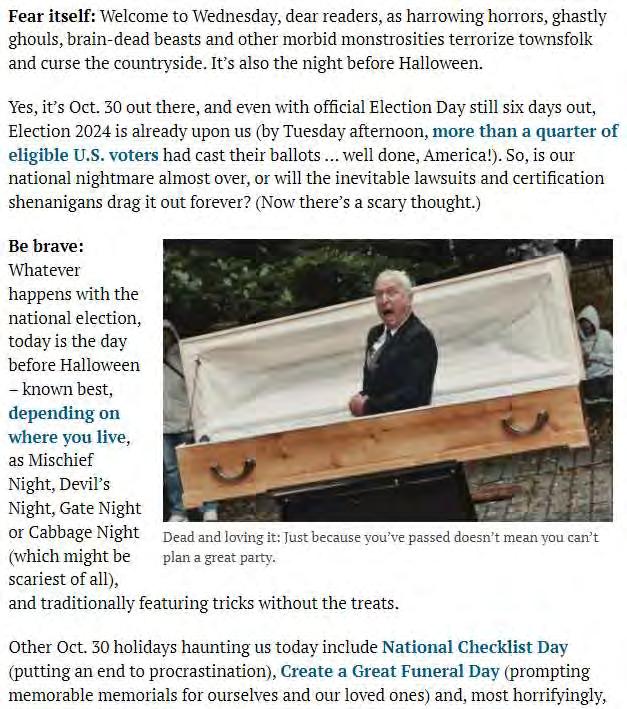
Available online at: https://www.innovateli.com/no-922-the-election-from-hell-halloween-and-other-terrors-with-candy-corn-yikes-andcabbage-eek/

Hannah Devlin
Liam Dall received the inaugural Elite 19 award, recognizing his athletic and academic achievements.
Dall is a Glen Cove High School alum, and he is currently graduate student at SUNY Old Westbury. He is a member of the university’s men’s golf team.
“Being chosen for the inaugural Elite 19 award is an incredible honor,” Dall said.
“It acknowledges not only my athletic performance but also my academic achievements, which means a lot to me,” he said.
The Elite 19 award is awarded by the Skyline Conference, an athletic conference that competes in NCAA’s Division III.
Posted on November 2, 2024

The award is presented to the to the student-athelete with the highest cumulative grade point average competing in the conference, said SUNY Old Westbury.
Dall received the award during the 2024 golf championships.
Dall said he has played golf for 10 years.
“I started playing golf in 7th grade and have been a member of the Glen Cove High School and SUNY Old Westbury Men’s Golf teams since then,” he said.
Dall graduated from Glen Cove High School in 2021 and currently has a 4.0 average, said Old Westbury Athletics.
Dall said he currently is a graduate student.
“I graduate in the Spring with a master’s in taxation,” he said.
“I am studying for the CPA exam and intend to start law school next Fall,” Dall said.
Dall said as a student-athlete, he has learned important skills to balance his workload.
“Being a student-athlete has taught me valuable time management skills,” Dall said.
Old Westbury Athletics said Dall and his teammates finished fourth of the eight competing teams in the Skyline Conference this year.
“The most rewarding aspect is the camaraderie with my teammates and having the ability to compete with others who have similar interests,” Dall said.
Full article can be viewed at: https://www.longislandpress.com/2024/11/02/old-westburys-liam-dall-receives-inaugural-athleticsaward/

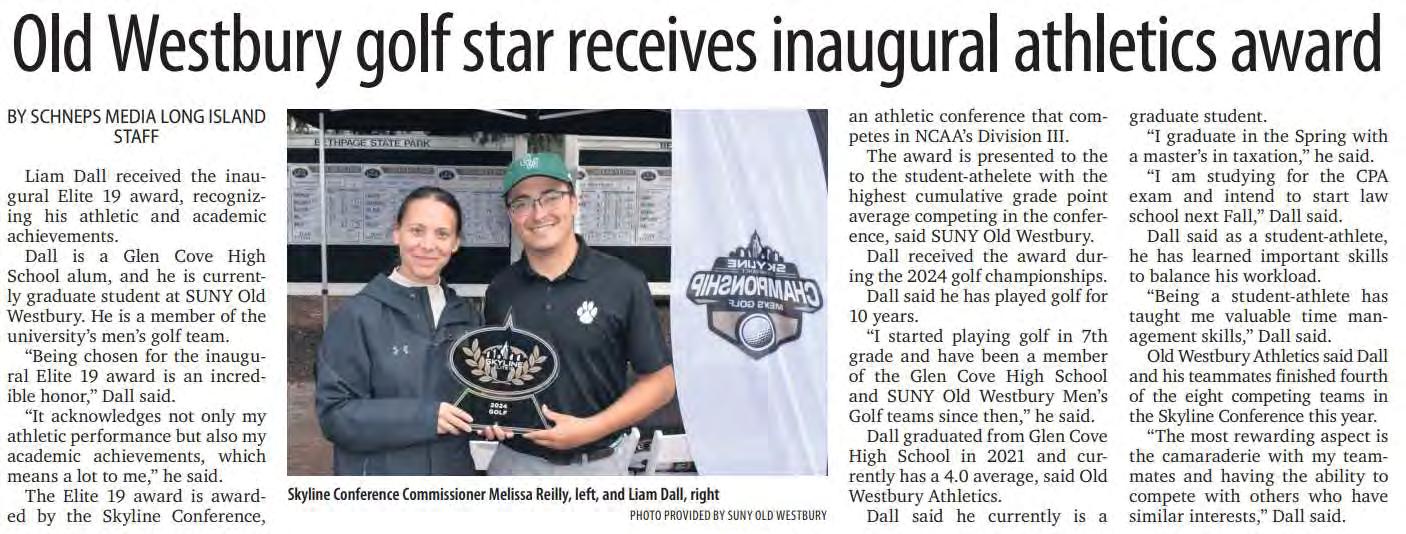

Amy Mondello- Glen Cove Public Library, Local Official

Event Details
Tue, Nov 12, 2024 at 5:45 PM
Add to calendar
Glen Cove Public Library, 4 Glen Cove Ave, Glen Cove, NY, 11542
This educational presentation, led by SUNY Old Westbury’s Master’s in Forensic Accounting students and supervised by Certified Fraud Examiners (CFEs), offers practical advice on preventing financial fraud. It covers prevalent fraud schemes such as phishing, imposter scams, and romance scams, and provides effective strategies for detection and prevention.

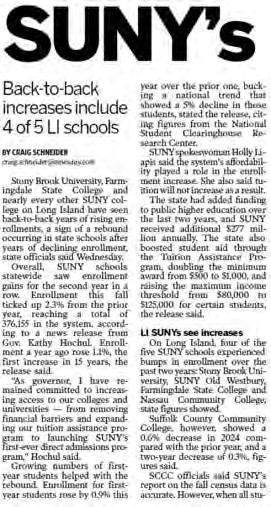



















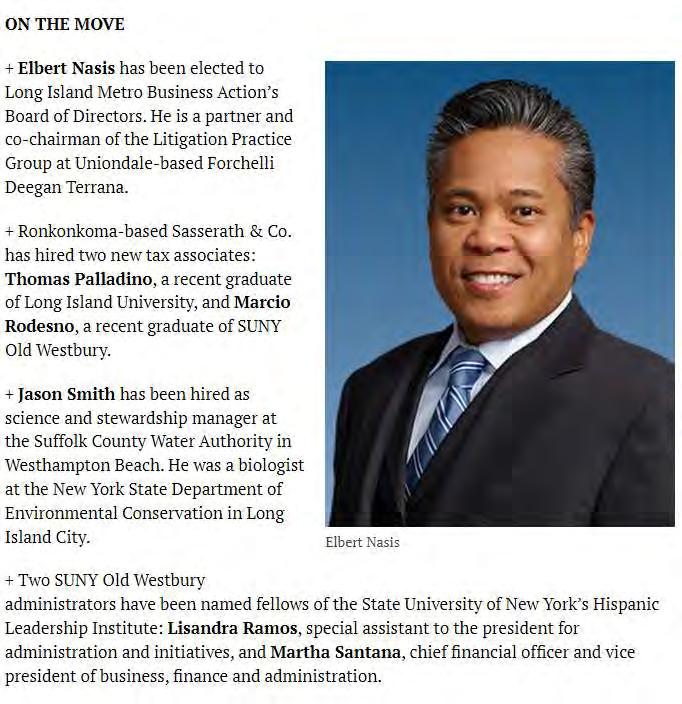

Available online at: https://www.innovateli.com/no-929-new-rental-housing-hank-foley-and-plenty-more-to-be-thankful-for-includingsome-much-needed-days-off/








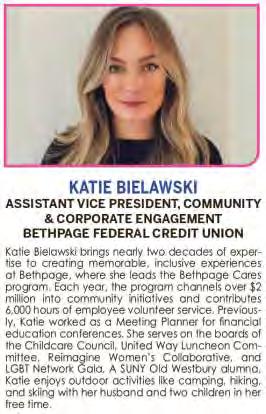
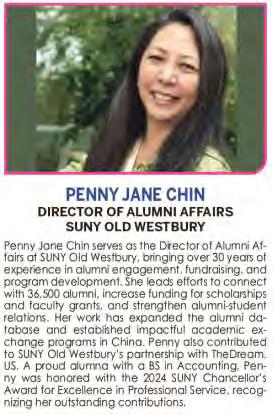


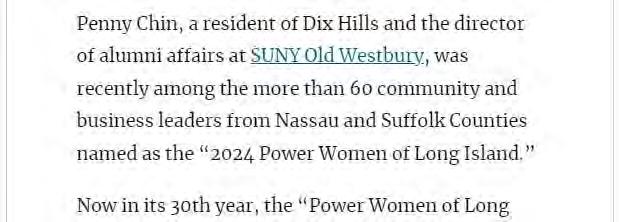
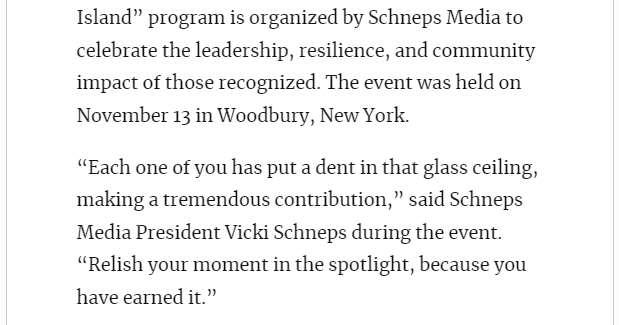
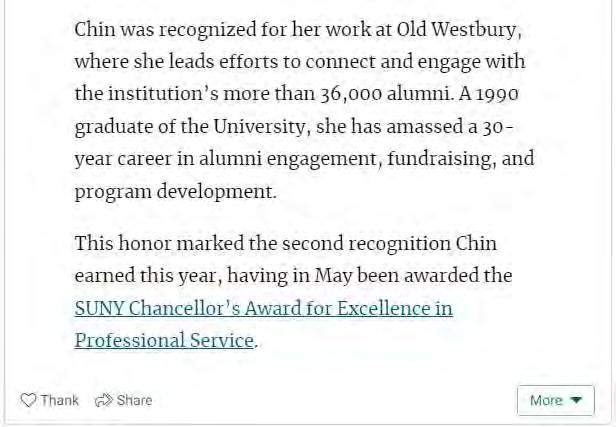
Visit article online at: https://patch.com/new-york/halfhollowhills/dix-hills-resident-named-among-power-women-long-island-nodx

By Editorial Team on December
12, 2024
The Levittown School District has announced that 12 senior athletes from Division Avenue and General Douglas MacArthur High Schools have committed to play for their future colleges and universities.
Senior athletes were joined by their parents and coaches to mark the occasion. Each student signaled their commitment to continue to play their respective sport at their next educational destination.
From Division Avenue, athletes included:

• Ashley Anderson – SUNY Farmingdale, volleyball
• Jessica Bowe – Brooklyn College, softball
• Kenneth Griffin – SUNY Old Westbury, baseball
• Matthew Hartmann – City College of New York, baseball
• Isiah Marino – Molloy University, baseball
• Rebecca Petrellese – Molloy University, soccer
• Emma Robins – SUNY Cortland, softball
From MacArthur, athletes included:
• Caitlin Barry – University of New Haven, soccer
• Bella Calabro – Seton Hall University, soccer
• Hailey Trapani – Wilmington University, softball
• Nicole Magnozzi – Bard College, soccer
• Alexandria Zambrano – Pennsylvania State University, gymnastics

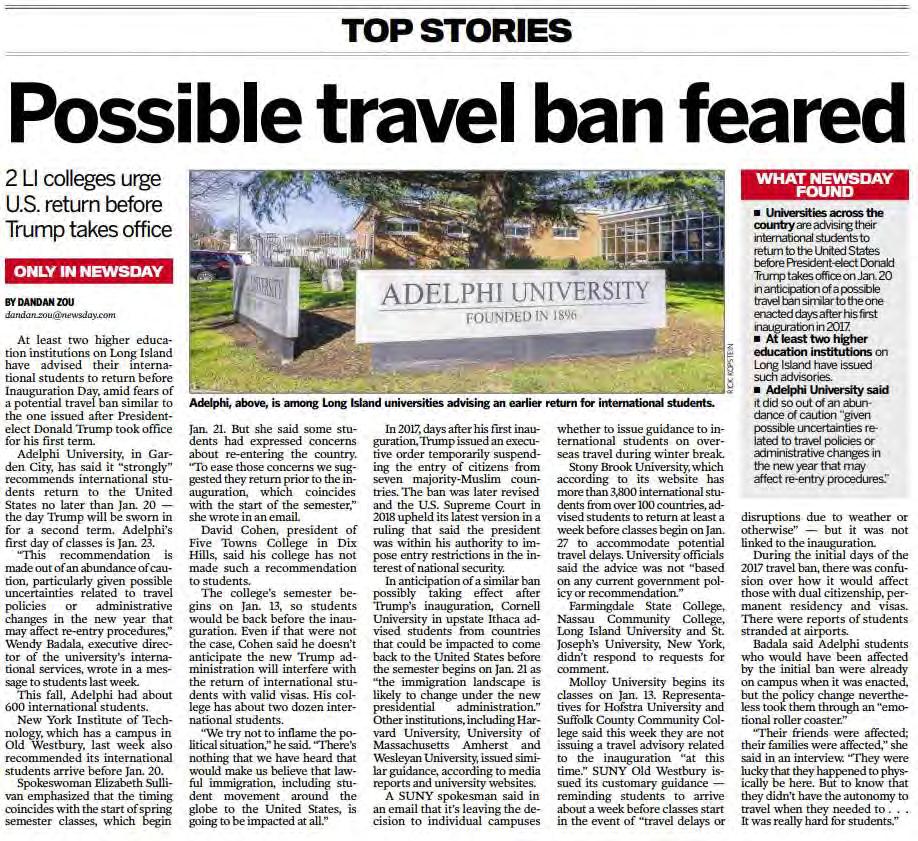



By Joel Lanz, CPA/CGMA/CITP/CFF, CISM, CISSP, CFE
Artificial intelligence (AI) is not a philosophical discussion, business dream, or science fiction for CPAs whether they are risk managers, auditors, or financial executives. Unlike many business development or operational executives who dream of expanding opportunities and efficiencies, CPAs and other financial professionals recognize and respect the accompanying threats that could just as quickly hinder the organization’s survival and stakeholder value. The concern is not so much the macro threats that impact society at large, over which an organization has little control, but the micro threats that require the navigation of governance and management to facilitate the achievement of organizational objectives. Like previous introductions of new technologies, the pressure of individual business lines to execute and potentially obtain new gains may exceed the prudence of managing enterprise-wide risks and protecting existing stakeholder value. And given CPAs’ responsibilities, a process to manage and audit these risks is needed.
Many CPAs become quickly overwhelmed when comes up. Some are overwhelmed by media reports of displacement of their jobs. Others believe that the accounting professional’s role in AI is limited to tools that perform traditional accounting-related tasks. Fortunately, dedicated practitioners recognize the opportunities and try to remain relevant.
Although many CPAs recognize their obligations in terms of professional competency, many do not adequately prepare themselves to make the most of their AI-related engagements. One place to start is this column, which previously provided an analysis of accounting-related publications to help readers better understand how AI can impact their jobs and careers (“Artificial Intelligence: Evolving Risk Guidance and Considerations,” https://www.nysscpa.org/2309-jl).
It’s not a question of engaging outside expertise but rather having an executive’s understanding of high-level threats and potential controls to mitigate them. This understanding is the minimum needed to remain engaged with decision-makers and direct and oversee the activities of AI specialists. The following represent common “worst practices” in providing AI-related services.
Failure to Use Existing Organizational Governance Practices and Policies
While AI is a relatively new technology for the enterprise, an organization’s existing governance and policies still apply. Even if the term AI is missing from the documentation, a satisfactory governance process should provide for emerging technology issues. Governance is more than getting leadership’s permission; it is about managing risk by understanding the impact on the organization, fulfilling regulatory obligations, appreciating the effect of vendors, and meeting stakeholder expectations that continue to matter.
Suppose accommodations for AI are needed and justified. In that case, a robust current exception process should ensure that those with governance responsibilities become aware of deviations from previously agreed-upon behavior and practices and approve them if appropriate.
Some professionals rely too heavily on the media to learn about AI and its risks. Another challenge is the risk of information overflow. This can result in decision-makers not obtaining the knowledge and understanding needed to converse with, and challenge, advisors who are more familiar with the details. The challenge CPAs face is getting a trustworthy perspective as quickly as possible to jumpstart their education and research.
Many accounting and advisory firms publish whitepapers discussing AI and its risks. While these resources can be valuable, they may not be updated regularly or not have critical nuances identified. Practitioners should consult the United Kingdom’s National Cyber Security Centre article, “AI and Cyber Security: What You Need to Know” (https://tinyurl.com/4f4xt7d8), which is reliable and to the point, emphasizing key risk considerations for organizations at a high level.
Neglecting Financial Statement Implications
It’s easy to forget that AI does impact financial statement reporting. Unfortunately, some CPAs believe AI is all about increasing revenue or decreasing cost. The Center for Audit Quality’s “Emerging Technologies, Risks, and the Auditor’s Focus” (https://tinyurl.com/bdf5tnya), although not explicitly written for AI, does cover timeless risks including access privileges, erroneous changes, third-party oversight, change management, cybersecurity, and data reliability. Ironically, the risks themselves are similar, no matter the technology. It’s how they are managed that is different.
Neglecting to Consider a Recognized AI Risk Management Framework
When one considers that AI is still in its infancy, the number of consultants proclaiming themselves AI experts is quite alarming. The question is, where do those who do the advising go to obtain their understanding of AI risk? The Nationals Institute of Standards and Technology’s (NIST) Artificial Intelligence Risk Management Framework (NIST AI 100-1, https://tinyurl.com/mwfzndb5) is quickly
becoming a critical professional reference in understanding the practices expected to manage AI risk. According to the executive summary, “The Framework is designed to equip organizations and individuals—referred to here as AI actors with approaches that increase the trustworthiness of AI systems, and to help foster the responsible design, development, deployment, and use of AI systems over time” (p. 2). CPAs should leverage the contents in facilitating discussions and challenging line executives on identifying and managing risks.
Many, if not all, industries are preparing to evolve with AI developments. Each sector has its own opportunities and threats. While standard AI tools are widely used, the shared implementation experiences within specific industries offer valuable lessons. Information Sharing and Analysis Centers (ISAC) help critical infrastructure owners and operators protect their facilities, personnel, and customers from cyber and physical security threats and other hazards. ISACs collect, analyze, and disseminate actionable threat information to their members and provide members with tools to mitigate risks and enhance resiliency (https://www.nationalisacs.org/about-isacs). For example, the financial services industry ISAC, FS-ISAC, “released six white papers designed to help financial services institutions understand the threats, risks, and responsible use cases of artificial intelligence (AI). The papers are the first of their kind to provide standards and guidance curated specifically for the financial services industry. They provide additive resources that build on the expertise of government agencies, standards bodies, academic researchers, financial services partners including FSSCC and BPI/BITS, and NIST’s AI Risk Management Framework” (https://www.fsisac.com/newsroom/pr-ai-risk-papers).
Not Obtaining a Real-World Understanding on Risk Management Challenges Faced
Many recognize the financial services industry as a leader in implementing AI. CPAs in all sectors could gain insight into how AI could impact their industry by understanding experiences from this sector. One would generally expect numerous cases of successful and profitable implementation of AI projects. Although this may happen in the future, the industry is not there yet. In March 2024, The U.S. Treasury Department issued a report focusing on the state of AI-related threats in financial services (“Managing Artificial Intelligence Specific Cybersecurity Risks in the Financial Services Sector,” https://home.treasury.gov/news/press-releases/jy2212). Its uniqueness is that “the report’s findings are based on 42 in-depth interviews conducted in late 2023. The interview participants include representatives from the financial services sector, information technology (IT) firms, data providers, and anti-fraud/anti-money laundering (AML) companies.” Among its key findings is a list of best practices used in the industry to manage AI risk.
Much has already been written about AI and auditors, from investment analysts to public media, including industry and professional groups. Much of the former guidance is geared toward the possibilities of AI within the profession, and the latter toward the techniques to automate practices. These are important. But clients care about results. Yet, when placed in the position of advising internal or external clients on managing business-related risks, available guidance although it exists can be limited. As implementations begin, the profession is starting to understand the types of controls needed in some situations to mitigate risks.
Most organizations rely on third parties to develop and initiate AI programs. In addition to overseeing issues related to non-AI activities, AI has also introduced new vendor risk management program challenges. Some of the unique considerations include the development of algorithms, data used for model development, data storage, operations and performance of AI, and monitoring expected results.
The most important part is to execute on the fundamentals. No matter the technology, many risks are realized due to management’s failure to perform basic control processes effectively.
Understanding the environment, assessing risk, ensuring controls properly function, getting the correct information, and monitoring continue to be classic challenges that continue to play a significant role in taking advantage of the business opportunities enabled by new technologies.
Joel Lanz, CPA, CISA, CISM, CISSP, CFE, is a lecturer at SUNY–Old Westbury and an adjunct professor at NYU-Stern School of Business, New York, N.Y. He provides infosec advisory services through Joel Lanz, CPA, P.C., Jericho, N.Y. He is a member of The CPA Journal Editorial Advisory Board.
